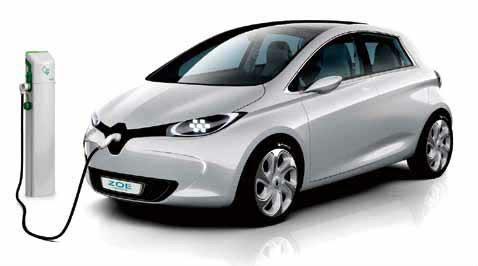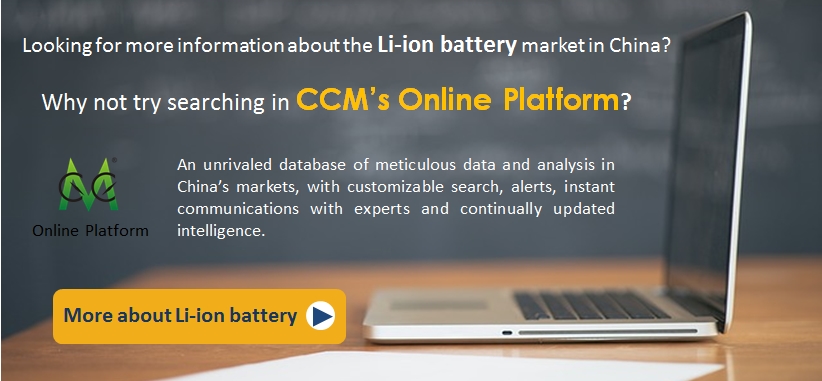In H1 2016, the output and delivery of
cathode materials both increased, thanks to the continuous growth of
alternative energy vehicle (AEV) business. However, impacted by the “subsidy
cheating”, decrease in subsidy and unclear AEV supporting policies, its
downstream users have yet to receive government subsidies, and have fallen into
arrears. This pressure now has already transmitted to Li-ion battery materials
business.

Source: Baidu
“Now we are mostly under heavy pressure caused by extended payment periods and
tight working capital,” said cathode materials manufacturers, “We reach a
consensus to enhance risk control ability, improve product quality, and deepen
cooperation with our clients.”
An industry insider stated in the following, “Given industry resource integration
and market competition intensification, the phenomena ‘the strong get stronger
and the weak get weaker’ will get clearer.”
Extended payment period causes sharp
increases in business operating pressure
Li Jigang, vice general manager of Tianjin STL Energy Technology Co., Ltd.
stated, “Small clients do business with us by cash and big clients have payment
periods of 2-3 months. However, now the payment periods are all extending.
Though we recorded large rises in sales in H1, we are also impacted by
payments. Now we are pressured heavily.”
Almost all cathode materials manufacturers are confronted with this problem.
The payment mode for many manufacturers with their battery manufacturers has
already been changed, from monthly settlement to 2/3-month settlement. In
addition, they have to take the pressure exerted by upstream raw material (such
as lithium carbonate and lithium hexafluorophosphate – LiPF6) producers. In
this context, they mostly have tight capitals.

An official from a cathode materials company said, “We are just a porter in the
Li-ion battery industry. We are working for upstream raw materials suppliers
and downstream users.” Now the lithium ferric phosphate (LFP) cathode material
producers are facing a bigger challenge: how to reduce costs and make more
profits, given the decreasing gross profit margin.
According to financial reports, cathode materials manufacturers including
Ningbo Shanshan Co., Ltd., Beijing Easpring Material Technology Co., Ltd. and
Jiangxi Kingli Science Share Co., Ltd. improved their sales and profits
significantly in H1 2016; however, they also have yet to receive all payments,
showing great capital risks. This is a big threat to business operation!
“The strong get stronger and the weak get weaker” trend to get clearer
Influenced by the investigation into
subsidy cheating and the unclear government policies, the domestic Li-ion
battery industry basically holds a “wait-and-see” attitude.
Except largescale power battery manufacturers, including BYD Company Limited,
Guoxuan High-tech Co., Ltd., Contemporary Amperex Technology Co., Ltd. and
Shenzhen Optimum Nano Energy Co., Ltd., most power battery companies recorded a
<50% operating rate and showed lows in both output and delivery in H1. For
this, they did not stock up raw materials and purchased based on production.
“No power battery manufacturers are stocking up cathode materials in large
quantities. As the new cathode materials projects start up in H2, battery
manufacturers will have more choices. Those poor in product quality and
technology capability may suffer more,” commented a trade source, “The power
battery manufacturers are cautious about capacity expansion and purchase of raw
materials. This to certain extent causes falls in both sales and prices of
cathode materials.”
In reality, the cathode materials segment is now accelerating the resource
integration and phaseout. It has already showed the “the strong get stronger
and the weak get weaker” trend.
In this context, largescale cathode materials companies are carrying out
financing activities to ease their capital pressure and to further improve the
product quality and production technology, and meanwhile, small companies are
seeking for partners for equity transfer so as to get rid of such predicaments.
This article comes from China Li-ion Battery E-News 1608, CCM

About CCM:
CCM is the leading market intelligence provider for China’s
agriculture, chemicals, food & ingredients and life science markets. Founded in 2001, CCM offers a
range of data and content solutions, from price and trade data to industry
newsletters and customized market research reports. Our clients include Monsanto,
DuPont, Shell, Bayer, and Syngenta. CCM is a brand of Kcomber Inc.
For more
information about CCM, please visit www.cnchemicals.com or get in touch with us
directly by emailing econtact@cnchemicals.com or calling
+86-20-37616606.
Tag: Li-ion battery